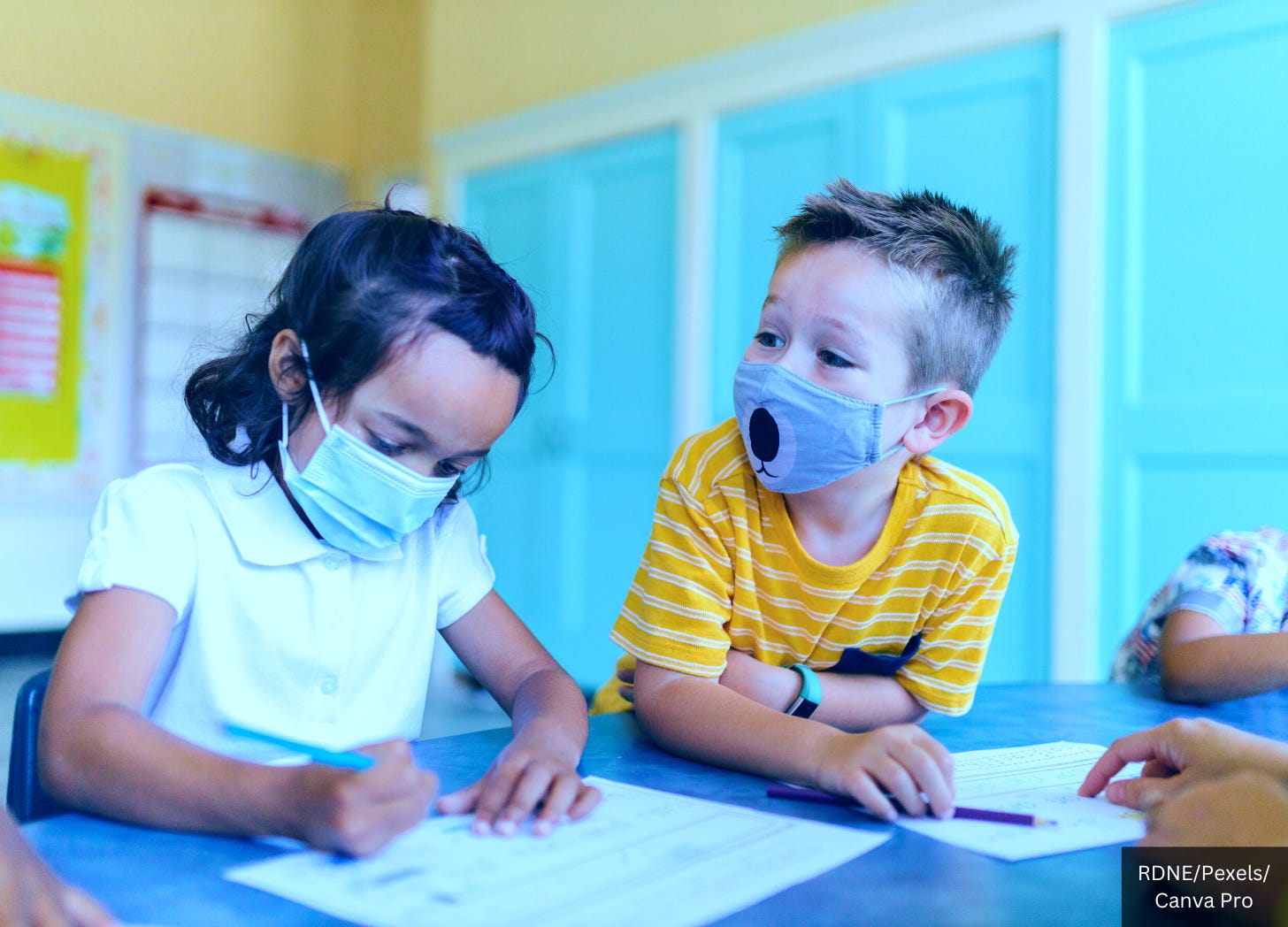'Current Body of Scientific Data Does Not Support Masking Children for Protection Against COVID-19': British Medical Journal
Mask wearing associated with "negative impacts on speech, language and learning" and "may also impact mental health and socialemotional well-being" in children.
A new peer-reviewed examination of 597 studies has confirmed that the effectiveness of making children wear masks in order to prevent COVID-19 “transmission or infection” has not been “demonstrated with high-quality” evidence.
“Real-world effectiveness of child mask mandates against SARS-CoV-2 transmission or infection has not been demonstrated with high-quality evidence,” the study published in The British Medical Journal (BMJ) reads. “The current body of scientific data does not support masking children for protection against COVID-19.”
Until this study, a risk-benefit analysis of child masking has “not yet been performed,” so the researchers “performed a systematic review to assess research on the effectiveness of mask wearing in children.”
They performed database searches up to February 2023 and screened the nearly 600 studies by title and abstract.
Selected studies were further screened as full-text references.
“A risk-of-bias analysis was performed by two independent reviewers and adjudicated by a third reviewer,” according to the study.
Twenty-two studies were included in the final analysis.
Significantly, the researchers discovered that, to date, there had been “no randomised controlled trials in children assessing the benefits of mask wearing to reduce SARS-CoV-2 infection or transmission.”
This is important because randomized controlled studies provide a rigorous and unbiased method for determining causality and evaluating the effectiveness of interventions, which informs evidence-based decision-making in various fields.
The authors emphasized that the only six observational studies reporting an association between child masking and lower infection rate had “critical (n=5) or serious (n=1) risk of bias” and that “all six were potentially confounded by important differences between masked and unmasked groups and two were shown to have non-significant results when reanalysed.”
The sixteen other observational studies “found no association between mask wearing and infection or transmission.”
The researchers underscored how “[r]eal-world effectiveness of child mask mandates against SARS-CoV-2 transmission or infection has not been demonstrated with high-quality evidence.”
“The current body of scientific data does not support masking children for protection against COVID-19,” they conclude.
“Because benefits of masking for COVID-19 have not been identified, it should be recognised that mask recommendations for children are not supported by scientific evidence.”
In the discussion section, the authors warn about the health risks associated with masking children:
“An extensive body of research has found harms associated with mask wearing or mask requirements in children. These associated harms include negative impacts on speech, language and learning. Mask wearing causes reduced word identification and impedes the ability to teach and evaluate speech,” they write.
“Mask wearing may also impact mental health and socialemotional well-being by limiting the ability to accurately interpret emotions, particularly in younger children.”
Here’s a list of the study’s main findings:



